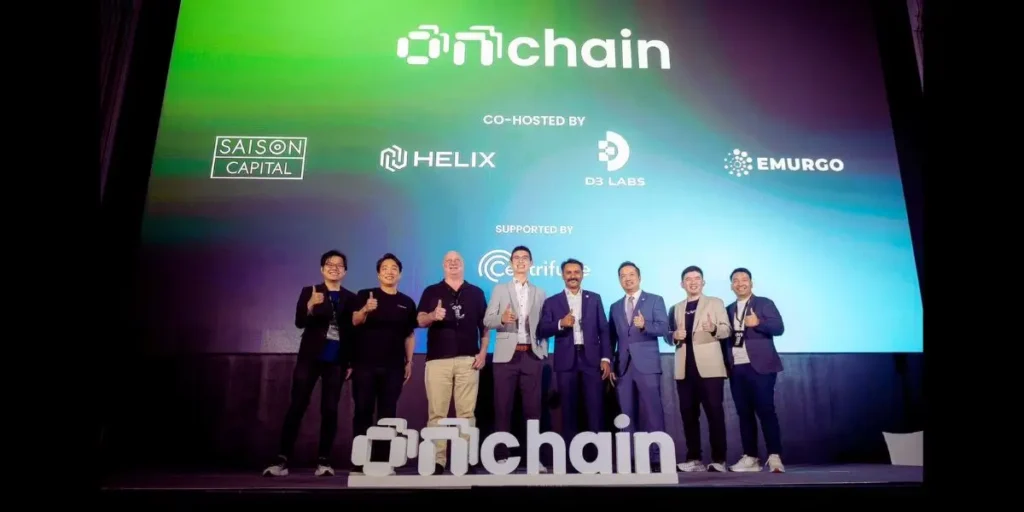Bangkok, Thailand, May 5, 2025 – As global interest in real-world asset (RWA) tokenization surges, Southeast Asia is quickly emerging as a strategic hub. At ONCHAIN 2025, Asia’s first dedicated RWA conference, more than 500 leaders from infrastructure providers, regulators, and financial institutions gathered to discuss the regulatory, technical, and market forces shaping the tokenization landscape.
Why does it matter? Asset tokenization is revolutionizing finance – unlocking liquidity, reducing costs, and democratizing access to investment. But how is Southeast Asia positioning itself as a leader in this space? Let’s dive in.
The Rise of Real-World Asset Tokenization in Southeast Asia
Real-world asset tokenization is transforming how we invest, trade, and manage ownership of physical assets—from real estate and commodities to government bonds and art. By converting these assets into digital tokens on a blockchain, investors gain fractional ownership, enhanced liquidity, and transparency.
Southeast Asia is uniquely positioned to lead this movement due to:
-
Progressive regulatory frameworks (e.g., Singapore’s Project Guardian)
-
High crypto adoption (Philippines’ retail-driven market)
-
Strong institutional participation (Thailand’s K Bank & SCB)
But what’s the current state of RWA tokenization in the region?
ONCHAIN 2025: Key insights into Southeast Asia’s tokenization boom
1. Philippines: Building a Minimum Viable Ecosystem
Nichel Gaba, CEO of PDAX, emphasized that tokenized assets need more than just products—they require an ecosystem of exchanges, custodians, and regulations.
Key Highlights:
-
85% of tokenized treasury bonds were bought by retail investors.
-
Union Bank is leading institutional adoption of stablecoins & tokenized assets.
-
Early Axie Infinity adoption boosted crypto awareness, paving the way for RWA growth.
Could the Philippines become the retail hub of tokenization?
2. Thailand: Leading with Investment Tokens
Host of ONCHAIN 2025, Thailand is making real progress in asset tokenization, driven by Kasikorn Bank (K Bank) and SCB.
Jittinun Chatsiharach, CEO of Token X, urged the industry to focus on real impact:
“Blockchain’s true potential lies in transparency, efficiency, and collaboration.”
Thailand’s approach? A unified effort between government, banks, and tech builders.
3. Indonesia: A Regulatory-First Approach
Despite being Southeast Asia’s largest economy, Indonesia is taking a measured approach to RWA tokenization.
Tigran Adiwirya of D3 Labs shared:
-
OJK (Financial Services Authority) is building a compliant framework.
-
INFINITY 2.0 sandbox fosters regulator-industry collaboration.
-
Digital asset issuance rules expected by Q3 2025.
Will Indonesia’s cautious strategy pay off long-term?
Singapore: The Institutional Testing Ground
While not the host of ONCHAIN 2025, Singapore remains a regional leader in RWA tokenization with:
-
Project Guardian (UBS, Standard Chartered testing tokenized assets).
-
Strong regulatory clarity attracting global institutions.
Is Singapore still the #1 hub for institutional tokenization?
The Future of Tokenization in Southeast Asia
The ONCHAIN 2025 summit made one thing clear: Southeast Asia is ready to scale RWA tokenization. But challenges remain:
✅ Regulatory clarity – Each country is moving at its own pace.
✅ Interoperability – Cross-border tokenized asset trading is still developing.
✅ Retail & institutional adoption – Balancing accessibility with compliance.
Qin En Looi of Saison Capital summed it up:
“The question is no longer ‘Can blockchain transform finance?’ It’s ‘How do we scale what’s working?’”
FAQs
1. What is real-world asset (RWA) tokenization?
RWA tokenization converts physical assets (real estate, bonds, commodities) into digital tokens on a blockchain, enabling fractional ownership and easier trading.
2. Which Southeast Asian country leads in RWA tokenization?
-
Singapore (institutional pilots)
-
Thailand (bank-led tokenization)
-
Philippines (retail adoption)
-
Indonesia (regulatory groundwork)
3. How does tokenization benefit investors?
-
Lower entry costs (fractional ownership)
-
Increased liquidity (24/7 trading)
-
Transparency (blockchain-recorded ownership)
4. What are the risks of RWA tokenization?
-
Regulatory uncertainty in some markets.
-
Custodial risks exist if security is weak.
-
Market adoption is still in the early stages.
5. Will RWA tokenization replace traditional finance?
Not replace, but complement. Tokenization enhances liquidity and access while traditional systems provide stability.
Conclusion
The ONCHAIN 2025 summit proved that Southeast Asia is no longer just exploring RWA tokenization – it’s implementing it. With Thailand’s bank-led initiatives, the Philippines’ retail adoption, Singapore’s institutional pilots, and Indonesia’s regulatory groundwork, the region is poised to lead the global tokenization movement.
What’s next?
-
Watch for OJK’s 2025 digital asset regulations (Indonesia).
-
Track Thailand’s SCB & K Bank tokenization projects.
-
Monitor Philippines’ retail-driven growth.
Want to stay up to date? Follow ONCHAIN Summit for the latest in real-world asset tokenization!
